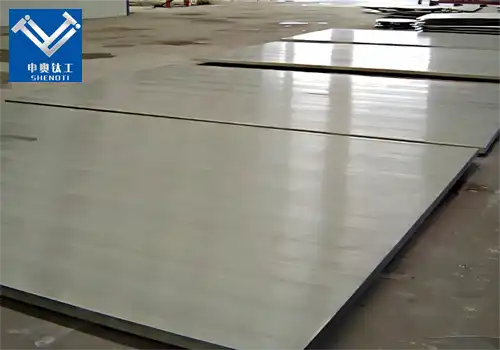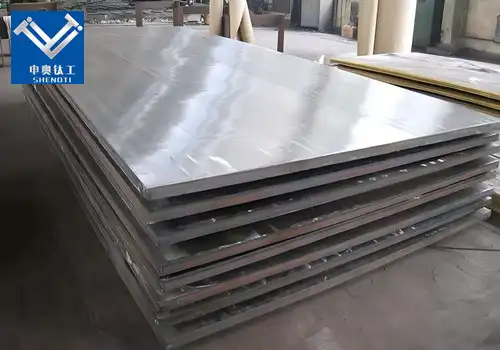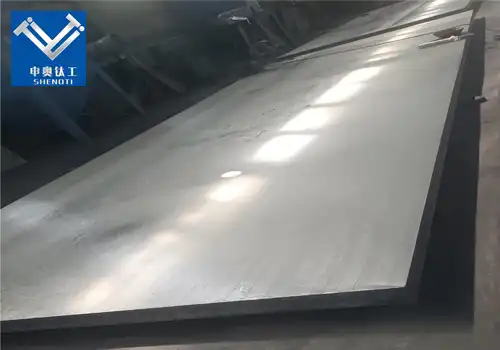
In Which Industries Are Titanium Clad Plates Mainly Used?
2025-05-06 16:58:18
In Which Industries Are Titanium Clad Plates Mainly Used?
Titanium clad plates are engineered materials that combine the exceptional corrosion resistance of titanium with the strength and cost-efficiency of carbon or stainless steel. This fusion creates a versatile material widely adopted across various industries.
What Are the Primary Industries Utilizing Titanium Clad Plates?
Titanium clad plates find applications in several key industries due to their unique properties:
1. Petrochemical and Chemical Processing
In the petrochemical sector, equipment is often exposed to corrosive substances. Titanium clad plates are employed in manufacturing:
Distillation columns
Reactors
Heat exchangers
Stabilizer tanks
Condensers
Their resistance to acidic, alkaline, and saline environments ensures longevity and safety in processing equipment.
2. Power Generation
Coal-fired power plants utilize flue gas desulfurization systems to reduce emissions. The resultant environment is highly corrosive, making titanium clad plates ideal for:
Chimney liners
Condensers
Heat exchangers
Their application extends to seawater desalination plants, where they withstand saline conditions effectively.
3. Salt Production
In salt manufacturing, evaporator shells are prone to scaling and corrosion. Titanium clad plates mitigate these issues, leading to:
Reduced maintenance frequency
Extended equipment lifespan
Improved salt purity
Their superiority over duplex stainless steel in such applications is notable.
4. Metallurgy
Hydrometallurgical processes involve aggressive chemicals. Titanium clad plates are used in:
Pressure acid leaching reactors
Processing of cobalt-nickel sulfide concentrates
Treatment of laterite nickel ore
Their durability ensures consistent performance in extracting valuable metals.
5. Marine Engineering
Marine environments are inherently corrosive. Titanium clad plates serve in:
Shipbuilding
Offshore platforms
Underwater structures
Their non-toxic nature and resistance to seawater corrosion make them environmentally friendly choices.
6. Aerospace Industry
The aerospace sector demands materials that are lightweight yet strong. Titanium clad plates are utilized in:
Aircraft body structures
Engine components
Their high strength-to-weight ratio enhances flight efficiency and structural integrity.
7. Automotive Industry
With the rise of electric vehicles, the automotive industry seeks materials that offset battery weight. Titanium clad plates are explored for:
Engine components
Exhaust systems
Suspension springs
Their application is projected to increase significantly, driven by the need for lightweight and durable materials.
What Are the Advantages of Titanium Clad Plates?
Titanium clad plates offer a combination of benefits:
Corrosion Resistance: Titanium's inertness protects against various corrosive agents.
Strength and Durability: The steel base provides structural integrity, allowing use in high-pressure environments.
Cost-Effectiveness: Cladding reduces the amount of titanium needed, lowering costs compared to solid titanium components.
Weight Reduction: Lighter than traditional materials, they contribute to energy efficiency in transportation industries.
Environmental Friendliness: Non-toxic and recyclable, they align with sustainable practices.
How Are Titanium Clad Plates Manufactured?
The production of titanium clad plates involves bonding titanium to a steel substrate. Common methods include:
Explosive Bonding: Utilizes controlled explosions to fuse metals at the molecular level.
Hot Rolling: Metals are heated and pressed together, forming a metallurgical bond.
Cold Rolling: Similar to hot rolling but performed at room temperature, resulting in thinner plates.
Each method ensures a strong bond, combining the properties of both metals effectively.
What Factors Influence the Cost of Titanium Clad Plates?
Several elements affect the pricing:
Material Grades: Higher-grade titanium increases costs.
Cladding Thickness: Thicker titanium layers require more material and processing.
Manufacturing Process: Methods like explosive bonding may be more expensive due to complexity.
Customization: Tailored sizes and specifications can add to the cost.
Market Demand: Fluctuations in demand for titanium and steel influence prices.
Contact Us
For more information or inquiries about titanium clad plates, please reach out to us at: Email: zh@baojiti.com.cn














